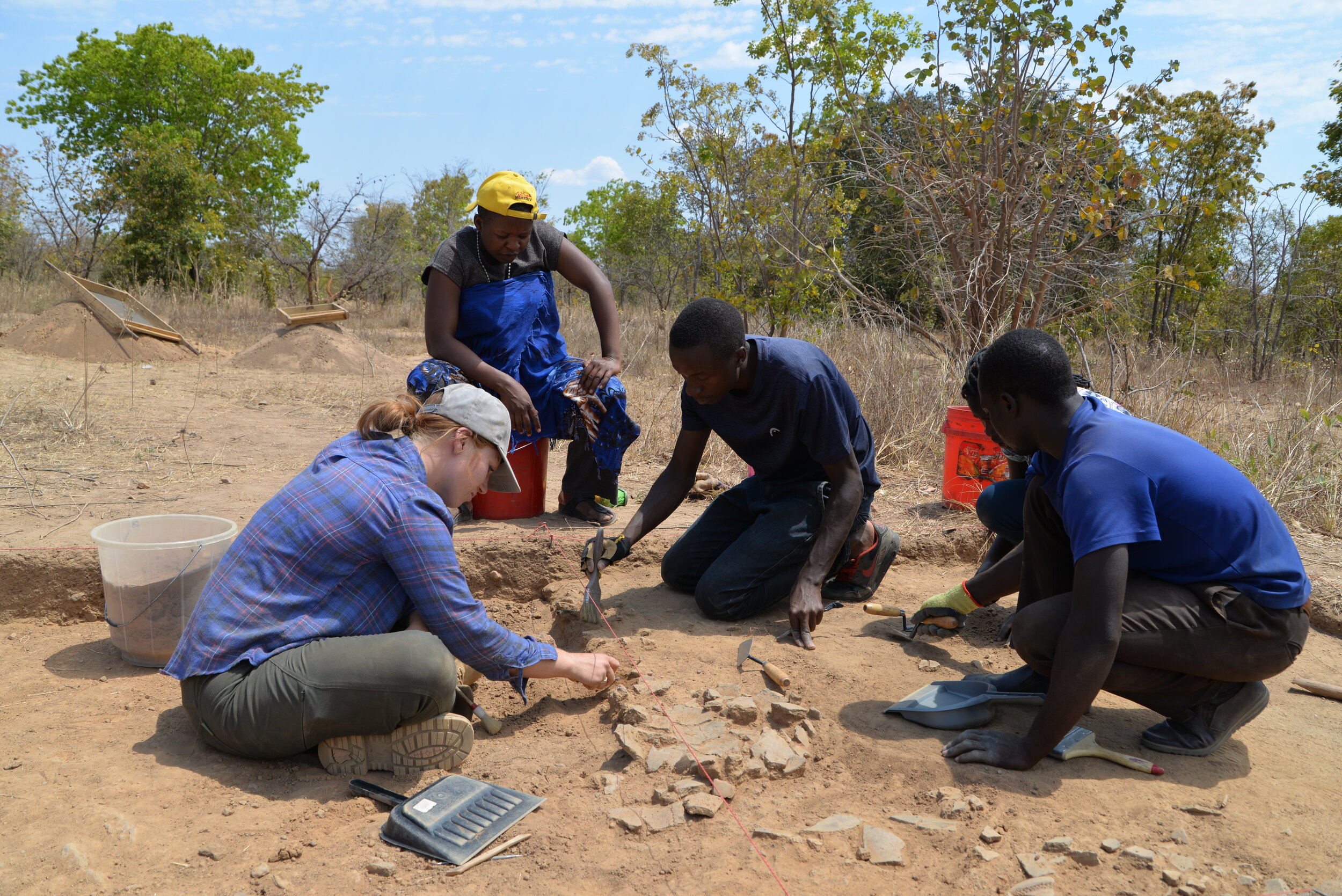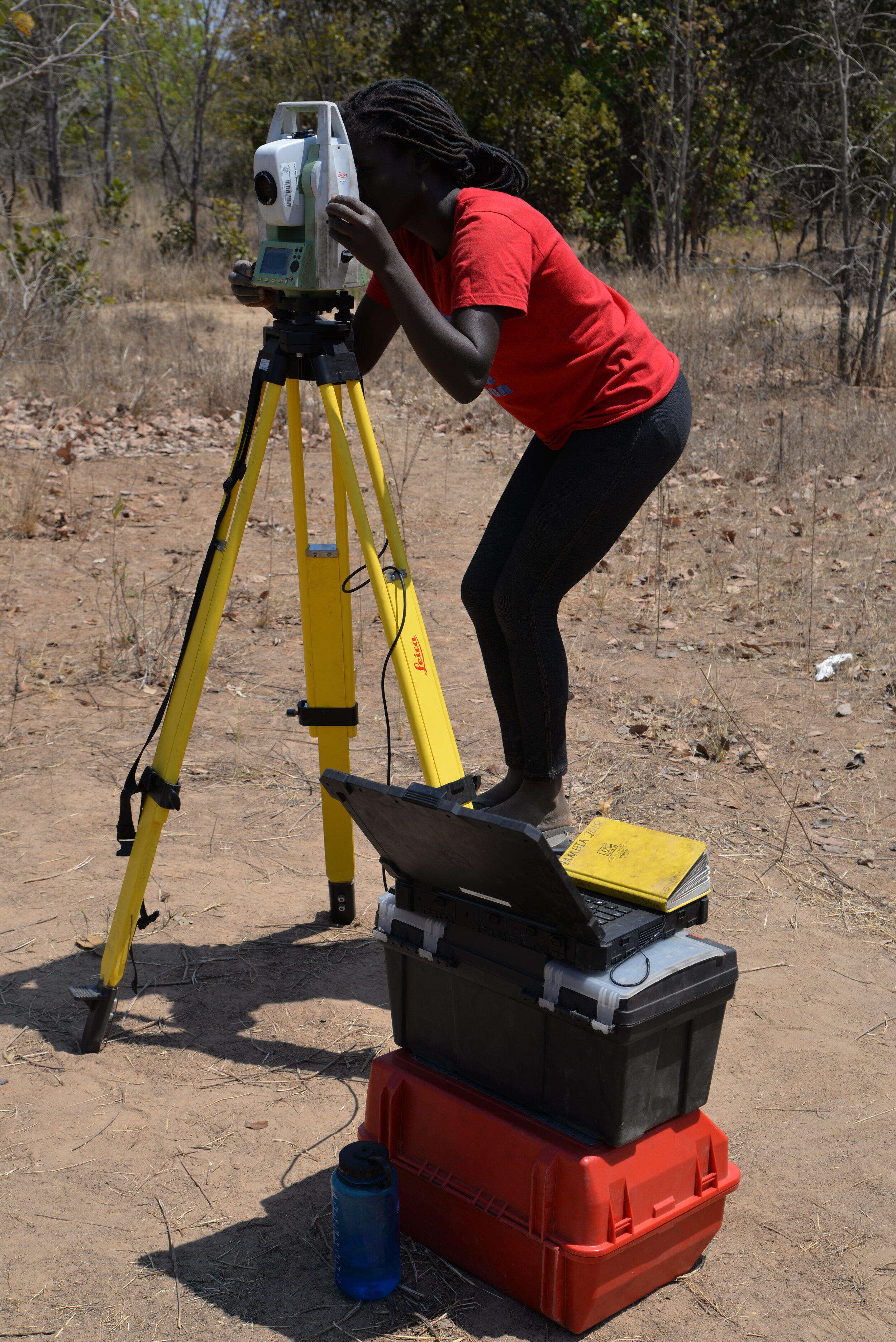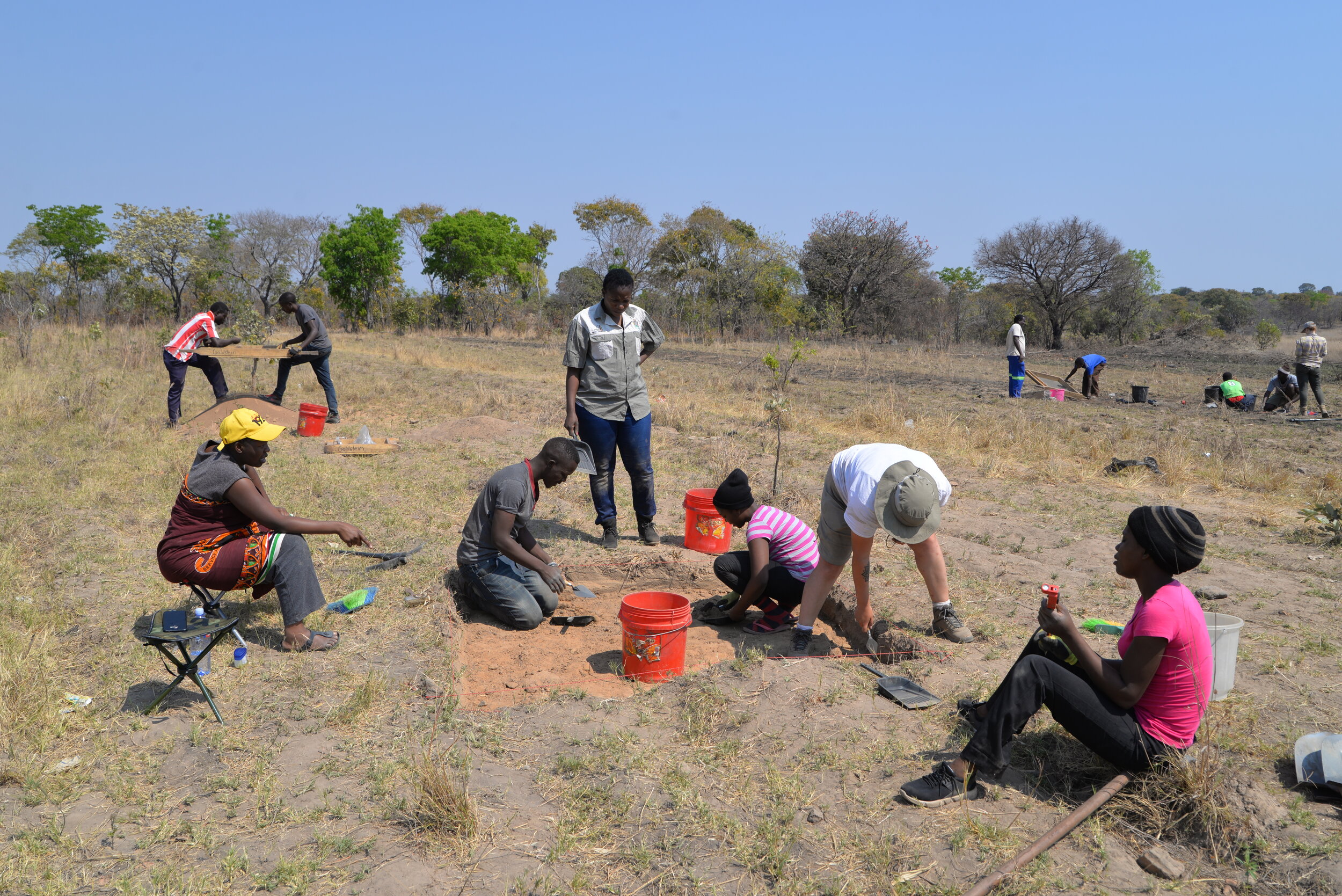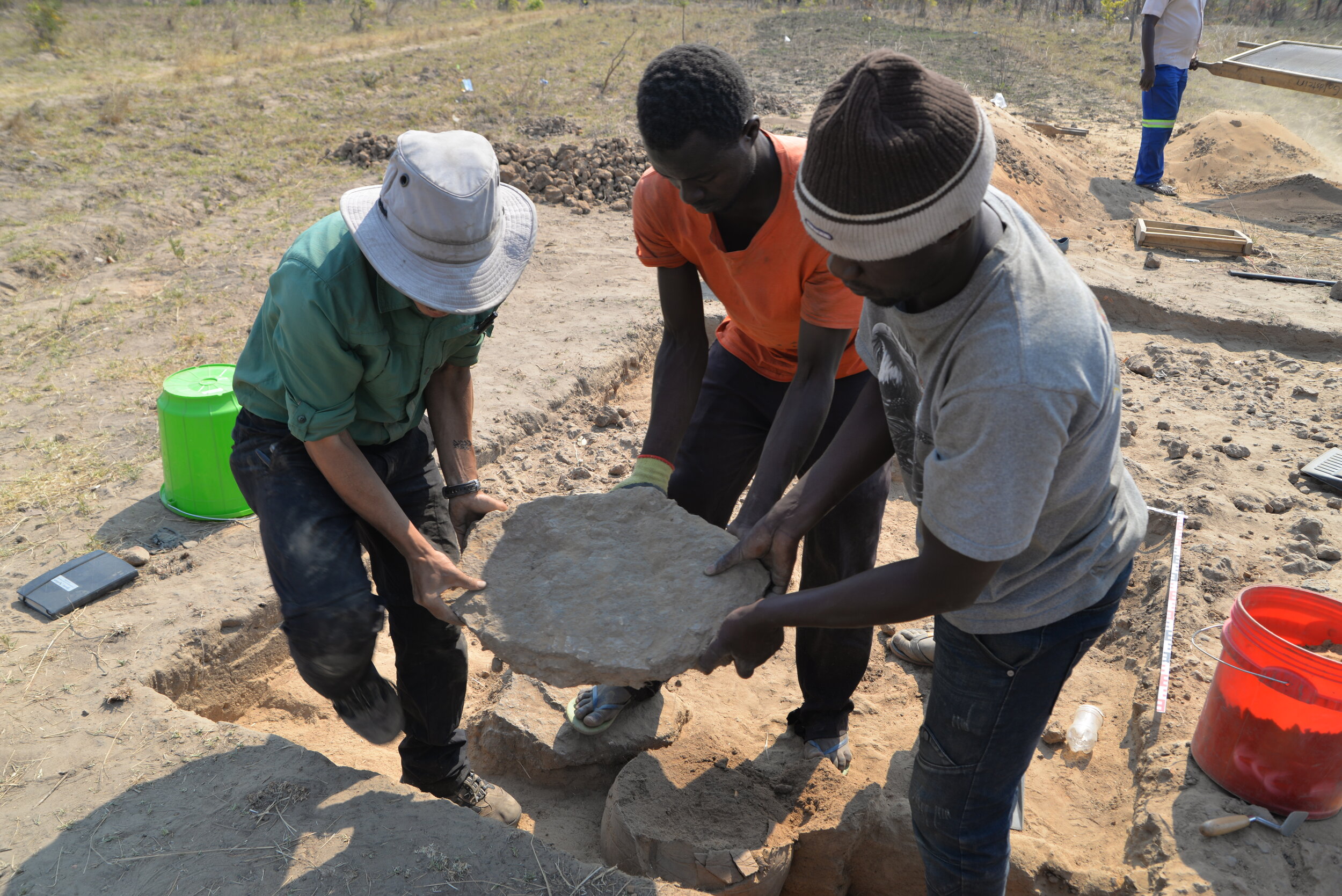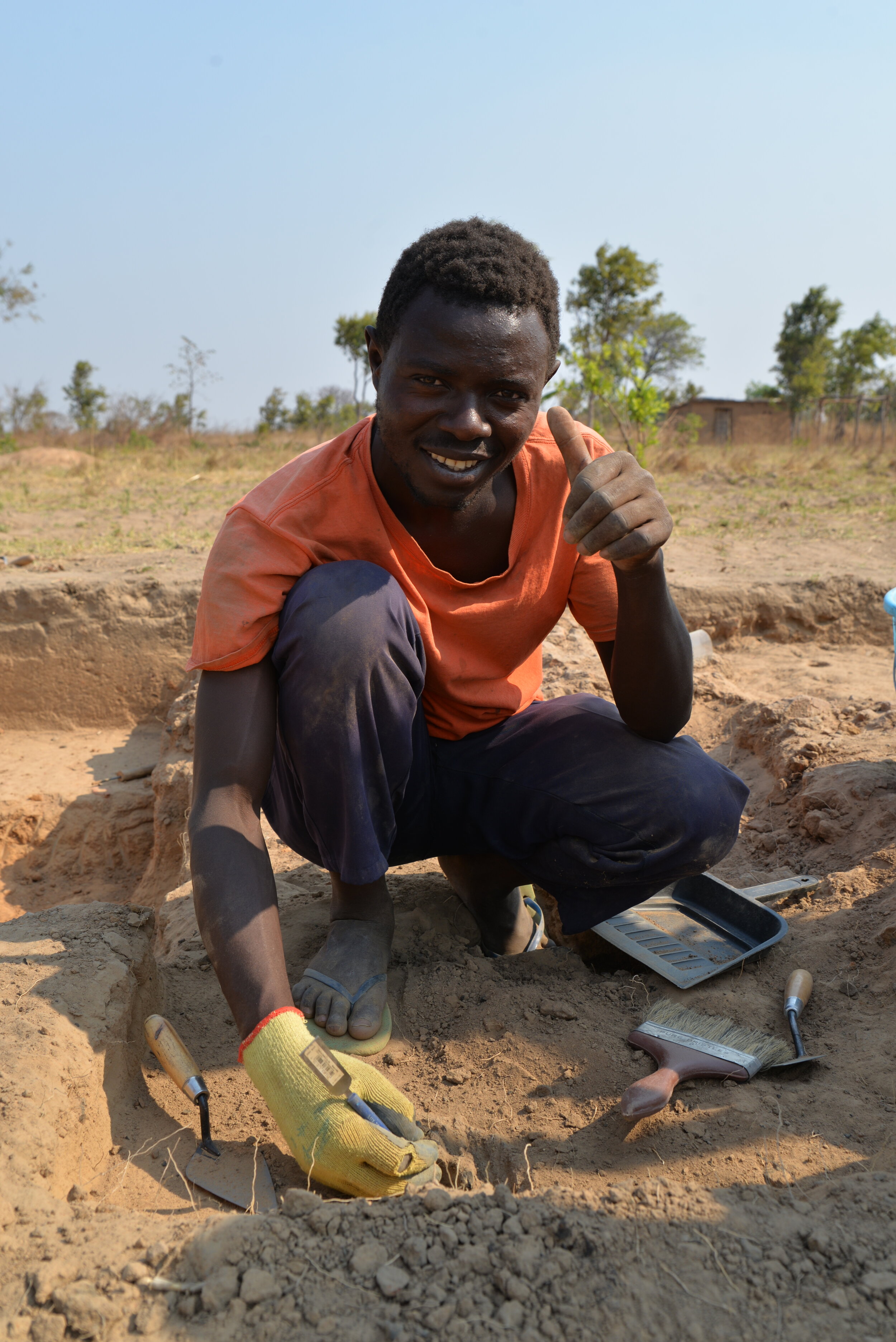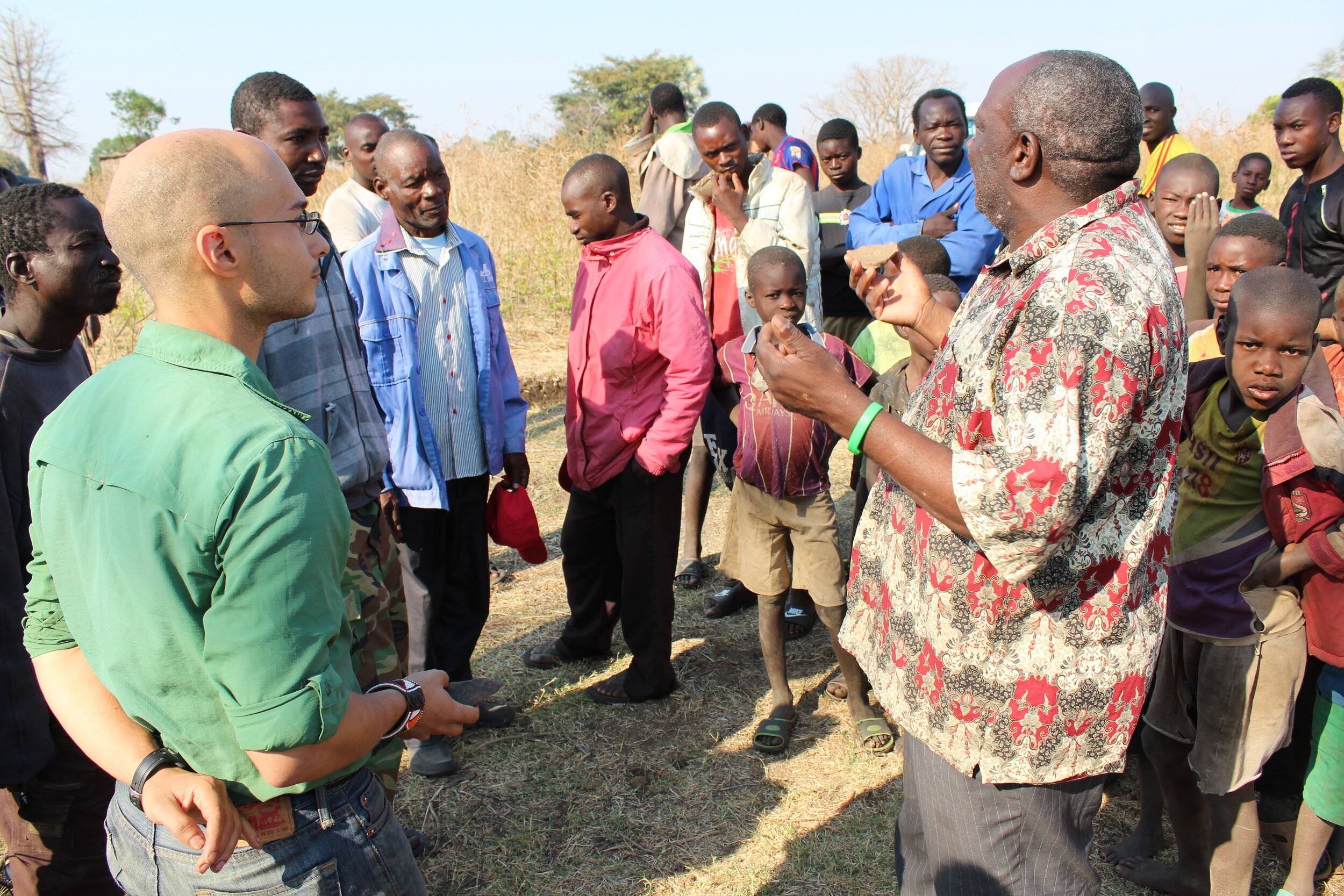Teaching
My approach to teaching is informed by my ongoing interactions with students, who aspire to better understand their world and strive to use their university education to confront major global challenges. My courses use major anthropological and archaeological issues, questions, and datasets to address emerging global issues. Archaeology provides a unique deep-time perspective on issues like confronting climate change, and I use this strength to develop classes that contribute to wide range of Liberal Arts and hard science trajectories. My courses also stress practical skills like designing and giving presentations, creative thinking and writing, statistical analysis, 3D software, and Geographic Information Systems (GIS).
I am also committed to training graduate students in African archaeology, environmental archaeology, and lithic analysis. Guided mentorship in the classroom, laboratory, and field are critical to high-quality training in archaeology. My collaborations to African research institutions and diversity of field projects across multiple countries allow me to work with students to develop Masters and PhD level research projects that match student interests and goals.
Photo by IPGGutenbergUKLtd/iStock / Getty Images
Introduction to Archaeology
My Introduction to Archaeology course is divided into sections on “origins of human diversity”, “food security”, “hierarchy and inequality”, and “the Anthropocene”. In class, we cover the development of archaeology as a discipline, traditional methods and emerging methodological advances, the theoretical underpinnings of contemporary archaeology. These are introduced within the context of both foundational and ongoing field and laboratory research projects that relate to these themes.
Rather than using a traditional textbook, I assign weekly modules in Revealing Archeology; a multi-media course-ware that teaches practical archaeological concepts through interactive exercises. I also integrate hands-on lab activities like flintknapping and faunal identification that expose students to the methods we discuss in class.
Environmental archaeology, Methods courses, and regional surveys
I teach a number a higher level courses, but the ones that excite me the most are Archaeology and Climate Change and Environmental Archaeology.
In these courses I challenge students to combine archaeological, socio-cultural, and climate science perspectives in developing persuasive presentations. For example, writing assignments In Archaeology and Climate Change are framed with questions like “If you could live in any prehistoric period, when would it be and why” and “How can archaeology inform climate science?”. In 300 level classes I also emphasize group discussions, and I assign weekly readings that offer different perspective on major archaeological debates. Students are challenged to evaluate scientific evidence as well as the argumentative style of authors, providing skills valuable beyond the classroom.
Other classes I am prepared to teach at this level include Archaeological Theory, African Archaeology, Origins of Food Production, African Peoples and Cultures, and Quantitative Methods in Anthropology.
>>>See Sample Syllabus for Archaeology and Climate Change<<<
>>>See Sample Syllabus for African Archaeology (300 Level)<<<
COmparative Seminars and Graduate-level courses
I am developing several courses that cultivate archaeological skills and specialization at the high-level undergraduate and graduate levels. Several of these courses involve mentored semester-long hands-on projects, like Lithic Analysis, GIS, Experimental Archaeology, and Quantitative Methods in Anthropology.
Comparative seminars with a global scope are also critical for students pursuing archaeology. My ideal curriculum would include student-led discussion seminars on issues of early food production, methodological advances in the field, origins of complexity, human landscape engineering, and cross-disciplinary courses investigating issues of food security and food sovereignty in the past and present.
I have experience working with graduate and undergraduate students in a one-on-one basis to advise on the collection, analysis, and publication of archaeological research projects.
Fieldwork Opportunities
My ongoing field research presents opportunities for undergraduate and graduate students to become engaged in multi-disciplinary research projects. I have experience mentoring undergraduate and early-stage graduate student research projects through my supervisory role in archaeological field schools in Kenya and Tanzania. Students who participate in these projects encounter new environments, peoples, and cultures, providing essential growth as world citizens. I will also mentor graduate level scholars through the difficult process of designing, executing, and publishing high impact research. Because of my diverse and active research programs and institutional collaborations, I already have numerous ideas for potential graduate projects that I am prepared to facilitate immediately.
Zambia Fieldschool
I am currently working with the University of Zambia to develop an ongoing archaeological/ethnobotanical fieldschool that will engage a diverse array of African and non-African students in anthropological experiences centered on the deep-history of African food production. Our pilot seasons with UNZA students have been extremely successful and we are actively applying for grants to expand the program.
If you are interested in participating in one my ongoing research projects, or would like any help developing a new project in eastern Africa, please feel free to contact me.
Turkana Basin Institute
Field school oppertunities in northern Kenya
Diversity and inclusiveness
Challenging students intellectually while maintaining anthropology classrooms as safe and inclusive spaces is another endeavor that guides my teaching. Core to the field of anthropology are the promotion of diversity and a respect for diverse voices. This must be reflected by instructor tone and conduct, but also in expectations for students. I work to be aware of particular student needs so that I can build learning environments that are positive and constructive. When achieved, this formula has proven successful in developing vital analytical skills, and engaging students.




